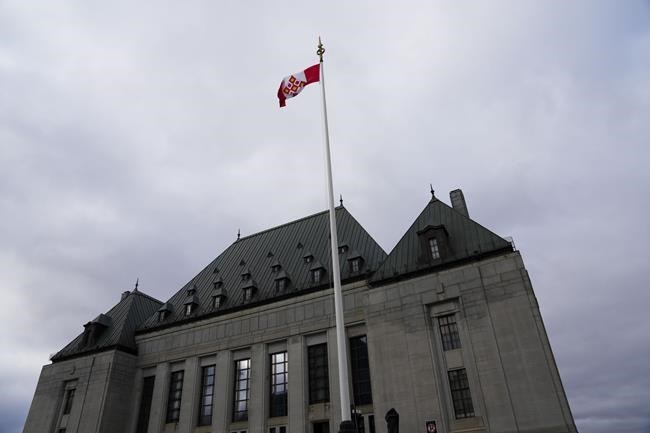OTTAWA — The Supreme Court of Canada has restored the conviction of an Ontario motorist who had been drinking, even though police made an unauthorized stop on a private driveway.
In a unanimous ruling Thursday, the top court said that given the circumstances, the evidence obtained from the unlawful police stop should not have been excluded by an appeal judge.
The Ontario Provincial Police were patrolling near Thessalon First Nation on Lake Huron after midnight in March 2016 when they noticed an all-terrain vehicle about to leave a parking lot outside a convenience store.
The officers decided to conduct a sobriety check of the motorist, Walker McColman, and followed his vehicle down a road and onto a private driveway that served his parents' home.
Upon approaching McColman, an officer noticed signs of intoxication, including a strong odour of alcohol and his inability to stand up straight.
McColman was arrested and taken to a police station for breathalyzer testing.
He was convicted in the Ontario Court of Justice of impaired driving and operating a motor vehicle with excess blood alcohol. However, the impaired driving conviction was stayed.
McColman received a 12-month driving prohibition and a $1,000 fine.
On appeal, a judge of the Ontario Superior Court of Justice found the stop to be unlawful, breaching McColman's Charter right not to be arbitrarily detained. The judge excluded the evidence and entered an acquittal.
The Ontario Court of Appeal dismissed the Crown's challenge of that decision, prompting an appeal to the Supreme Court.
In its ruling, the Supreme Court said police do not have authority under the Ontario Highway Traffic Act to conduct random sobriety stops on private property.
It found that a person who has care or control of a motor vehicle, but who is no longer on a highway, would not meet the definition of a "driver" under the provincial law.
Further, the court said the Highway Traffic Act stipulates that a police officer seeking to conduct a random sobriety check must, at a minimum, signal or otherwise request that the driver stop their vehicle on the highway.
Since the police waited until McColman had pulled into the private driveway before they signalled their intention to stop him, they did not properly invoke their authority to conduct a random sobriety stop under the provincial law, the Supreme Court said.
Given the stop was unlawful, the police breached McColman's right not to be arbitrarily detained, the court found.
Even so, the Supreme Court said that considering all of the circumstances, the evidence obtained from the unlawful police stop should not have been excluded by the Superior Court.
Writing on behalf of the top court, Chief Justice Richard Wagner and Justice Michelle O'Bonsawin said the unlawful stop constituted a marked, although not egregious, intrusion on McColman's Charter-protected interests and moderately favoured exclusion of the evidence.
"However, the evidence collected by the police was reliable and crucial to the Crown’s case and impaired driving is a serious offence," the judges wrote. "Admission of the evidence would better serve the truth-seeking function of the criminal trial process and would not damage the long-term repute of the justice system."
All nine Supreme Court judges heard the case, but Justice Russell Brown did not take part in the final disposition. Brown is on leave from the court while the Canadian Judicial Council examines a complaint against him.
This report by The Canadian Press was first published March 23, 2023.
Jim Bronskill, The Canadian Press



